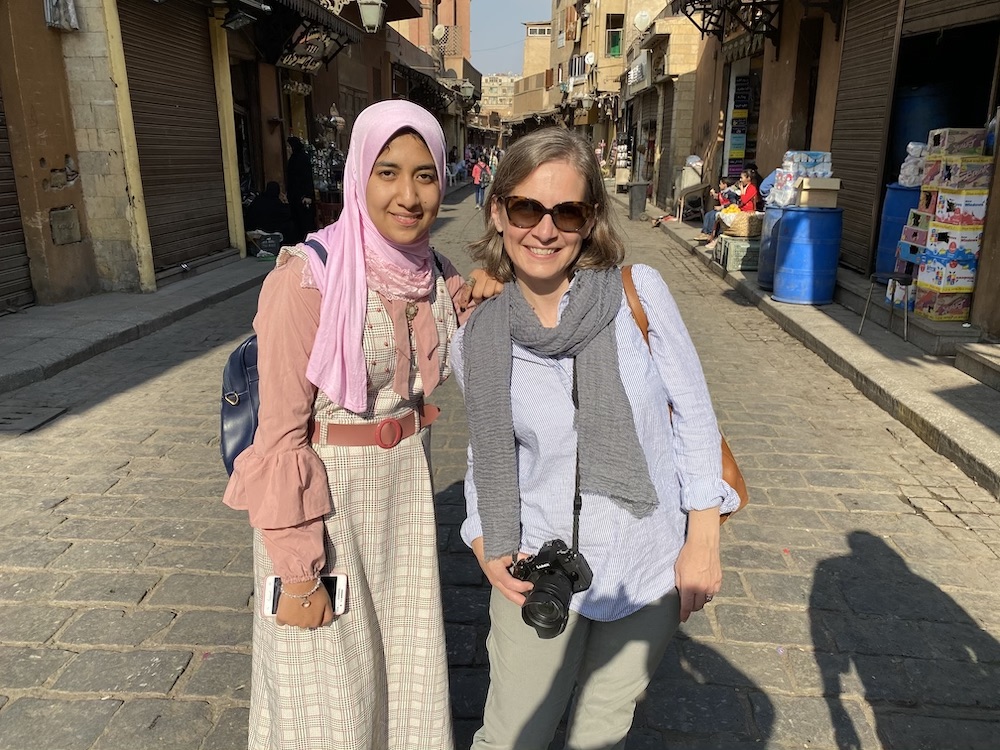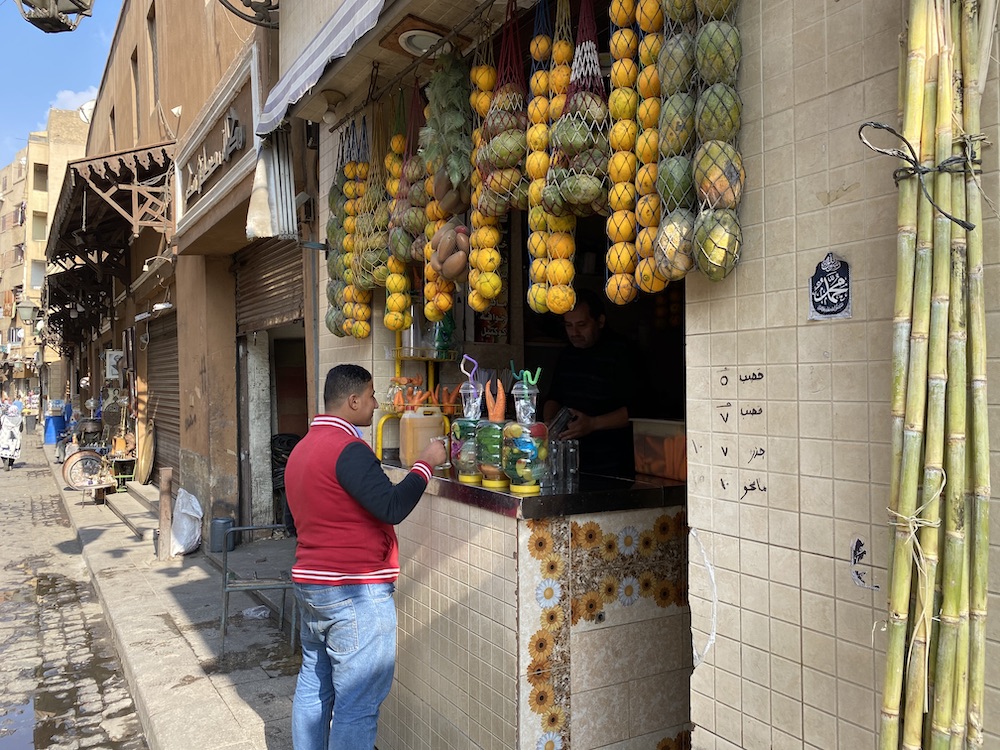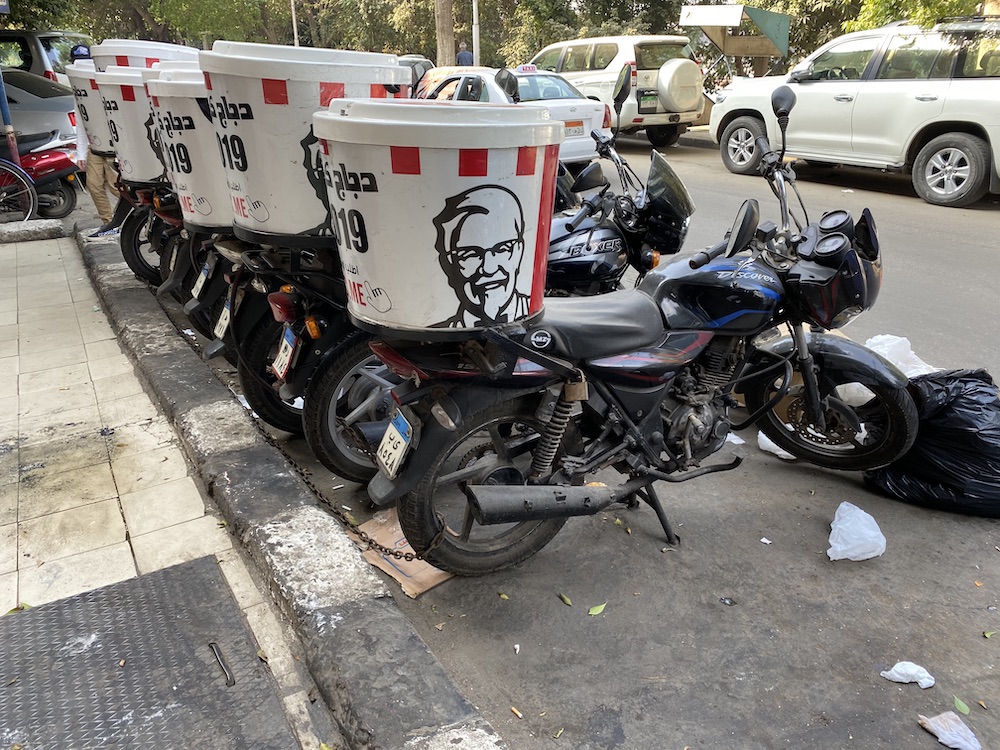
Ever since high school I’ve been studying up on the Middle East. I’ve read dozens of books, followed the news closely and made friends from Middle Eastern countries. I traveled to Israel in 1994, but I have never visited an Arab country.
As a boy, I stared at pictures of Egypt and Cairo my grandmother brought back from an early 1980’s trip to Egypt, sorting through her trays of slides and carved stone camel and pyramid trinkets. All these years I’ve tried to absorb as much as I could about Syria, Lebanon, Jordan, Iraq and Egypt. Nations with oodles of history and culture so different from America.
It has been so hard to envision what Egypt and Cairo is really like. And now that I’m here, I’m having a terrible time summing up what this country is really like.
Cairo is a crazy patchwork of contradictions. Maadi and Zamelek, two wealthier neighborhoods filled with expats, have Uber Eats delivery for KFC, Dunkin Donuts, plenty of English speakers and could easily be situated in Europe. But then go a mile away, and you’re presented with millions of gallibaya-clad men and veiled women. Under-employed, living in mud brick squatter houses, with electricity stolen from the street lamps and no running water or sewers, like in the City of The Dead, a cemetery turned squatter village in the middle of town.
We’ve met cosmopolitan graduates of Cairo University and Cairo American University who surged into Tahrir Square in 2011 and 2013. And yet the conservative Muslim Brotherhood continues to maintain a strong presence nationally and was strong enough in 2012 to win the country’s only ever democratic election.

There’s Carrefour stores along the highway from the airport, a kind of French version of Walmart, but most shopping is done the old fashioned way. For instance, most Egyptians buy meat by the kilo from a local guy. You don’t specify what cut, you just go to the butcher and he cuts chunks off the latest side of beef to come in. If you’re lucky, you get loin, but maybe you’re not, and you get a sinewy chunk with a bit of tender muscle instead. It helps to tip the butcher a bit extra, I suppose.
The Cairo subway is clean and fast. It’s just E£5, about 30-cents, there’s women-only cars and wooden roll-down window shutters to block out the sun when it’s above ground. But there’s only two lines in town, and it doesn’t really go to the poorest neighborhoods, keeping to Downtown, the airport and to wealthier spots along the Nile.
I’m told inflation has been high since the 2013 second revolution. But still, things are amazingly cheap by Western standards. I went to a pharmacy this morning to buy generic acetaminophen (Tylenol) and it was a mere E£25, which translates to about $1.70. Shocked when the clerk said just “that’s twenty-five”, I asked “Pounds, not dollars?” She and her companion clerk laughed at me, “Of course, pounds! Twenty-five dollars!” it seemed beyond consideration to her.
As in the south, police and security are everywhere in Cairo. At street corners, driving in armored cars downtown, standing with machine guns pointed at the crowd in towers outside military bases throughout the city. Egypt’s entire history, from the pharaohs, to the Ottomans, to modernity contains examples of the government controlling the people by force. Even the pharaohs had informers and secret police, I’ve read.
Life for the educated elite and expats is completely different from that of average Egyptians, I’ve observed and been told. If you have access to foreign money, you can make so much more money than average Egyptians, but you can still pay average Egyptian prices for food, transport, housing, whatever you need. So, there is a massive split between the classes and when you’re a white American strolling through most of Cairo, you’re eyeballed by most passers-by. Merchants are constantly trying to grab your attention, and young children want to talk to you, “Hello! Hello!” they yell.

People will stop you on the street to ask for you to take a selfie with them, just to prove they met an American. It’s charming, but unsettling when you begin to think about the root cause of the picture: Westerners are considered so powerful and affluent, just getting a picture with one seems like a dream. Sort of what I might feel if I encountered Bill Gates or Warren Buffet on the street.
I’ve decided that I love Cairo and Egypt, and that I’d like to come back here many more times. It has a magic that is somehow connected to its deep history, but also there’s a certain assurance that despite all the crazy crap the country has gone through, Egypt will end up being great again. It’s just a matter of time. And when your written history is well over 7,500 years old, you’ve got plenty of time to get things done.
And now, back to Chicago.